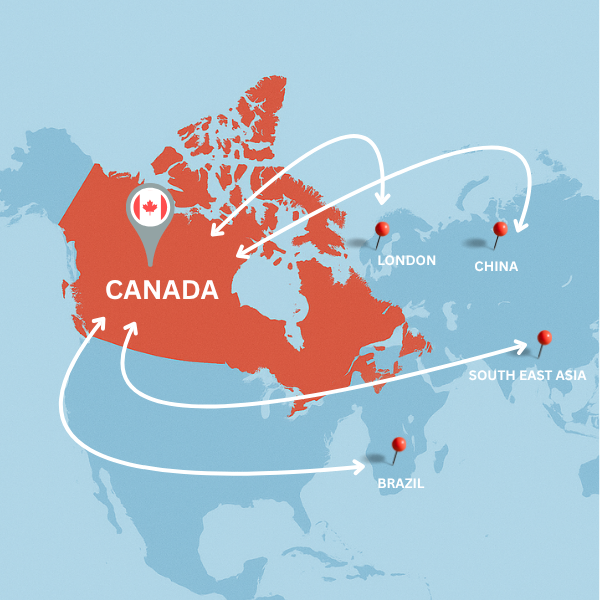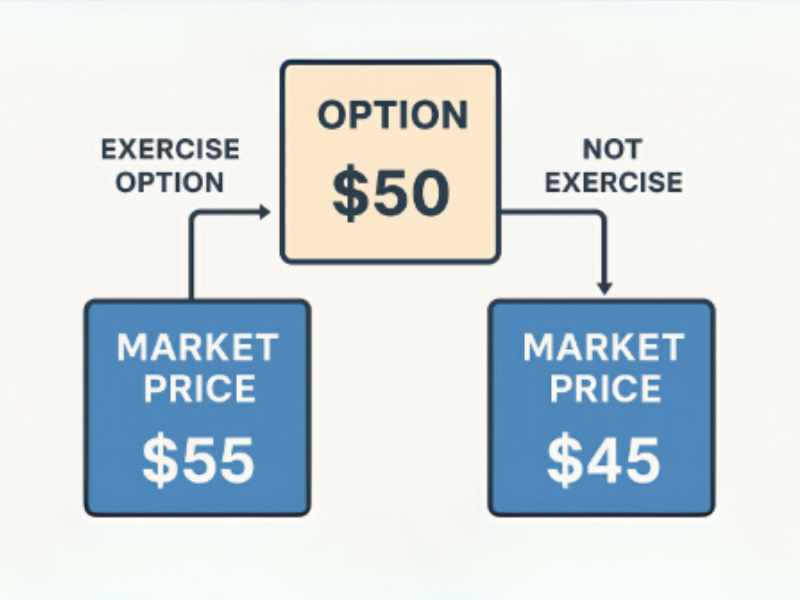- June 20, 2025
- Posted by: Deepak
- Category: Geopolitical Risk

Experience this blog through our audio narration.
In the current economic climate, with the rising uncertainty caused by measures like tariffs, it is easy to feel overwhelmed and apprehensive.
For businesses, there are significant costs to economic turmoil and uncertainty. Uncertainty leads to less consumer spending, fewer investments, and greater operational risk. These factors would greatly impact the profitability of your business.
The key to successfully navigating this turbulence lies in proactively taking measures to reduce the risks associated with economic uncertainty and turmoil.
To mitigate the risks associated with uncertainty, we propose several initiatives that your company can implement to minimize the impact on your revenue during this period.

Diversifying Trade Partnerships

Due to the recent tariffs imposed on Canada by the US, there are numerous supply chain disruptions. This is particularly impactful as around 77% of Canada’s exports are sent to the US.1 Furthermore, these constraints have been exacerbated by rapidly changing Canadian policy as a form of retaliation.2
As a business, there are steps you can take to ensure your revenues are protected during these turbulent times. Diversifying your trade partnerships beyond the U.S. can reduce your dependency on a single market. This includes exploring new international markets and developing more resilient supply chains to mitigate the risk of sudden tariff impositions or trade restrictions.
Companies in Alberta can also benefit from the Alberta Export Expansion Program (AEEP), which helps reduce the financial barriers of entering new markets. It helps by covering up to 50% of eligible export-related costs.3 If the eligibility requirements are met, it could help your company tap into new global growth opportunities.
Government Support and Trade Impact Programs

In response to the significant disruptions caused by the U.S. tariffs, the Canadian government has launched a series of robust support programs aimed at helping businesses navigate economic uncertainty. Companies can take advantage of the $5 billion Trade Impact Program offered by Export Development Canada (EDC), which provides financial assistance and strategic advisory services to help exporters access new markets and mitigate trade-related losses.4 Additionally, the Business Development Bank of Canada (BDC) is offering $500 million in low-interest loans to firms directly affected by tariffs and their supply chain partners, while Farm Credit Canada (FCC) has provided $1 billion in financing for the agricultural and food sector.5,6 These programs don’t just provide much-needed cash flow to struggling businesses- they also allow companies to reassess their operations and invest in a game plan that helps them move forward. Companies must proactively engage and review the criteria to determine if they are eligible to receive these benefits.
The Government of Canada offers a range of support programs to help businesses expand into international markets; one such initiative is the CanExport SMEs program. Through this initiative, successful applicants can receive up to $50,000 in funding to support business development activities in foreign markets, such as marketing, partnership development, and market research.7 Although applications for the current funding cycle are now closed, the program is expected to reopen soon, offering another opportunity for eligible businesses to expand globally.
Funds from the benefits can also be used to enhance supply chain efficiency and diversification, providing your company with long-term resilience. Furthermore, these funds could be used to invest in R&D during economic downturns, enabling your company to maintain a greater comparative advantage. A greater comparative advantage would provide your company with more profits because it reduces your production costs. Strategically utilizing the support available from government funds can help your company weather the storm during this period of market uncertainty, while also positioning your company for greater growth. [DJ8]
Proactive supply chain management
In today’s volatile economy, market uncertainty can have a ripple effect across industries. To achieve financial resilience, companies must proactively manage their exposure through operational and financial tools.
Effective supply chain management (SCM) is one way to achieve this. SCM includes strategically coordinating all the activities your business undertakes. This involves sourcing, producing, and delivering goods and services, with the aim of maximizing efficiency and therefore minimizing costs. SCM includes implementing flexible procurement contracts and just-in-case models to help absorb shocks from price volatility or logistical delays.
If your company focuses on commodities, from a financial standpoint, you can implement futures and options contracts to lock in revenues that are affected by the current market’s price volatility. Options contracts give you the right to buy or sell an asset at a predetermined price before or at a set date. Therefore, your company can benefit from supply shocks without losing the upside potential. The infographic below represents this in simpler terms:8

Why is this beneficial for employees?

The financial stress imposed on your employees through the current economic climate can affect their mental health. A decline in your employees’ mental health can significantly impact overall productivity. Implementing group benefit plans that prioritize employee well-being is an effective way to mitigate this effect on your business.
In challenging economic times, these plans alleviate employee anxiety, boost morale, and maintain productivity, ultimately enhancing your company’s performance. Additionally, offering a comprehensive benefits package can improve employee retention and mitigate the costs associated with turnover, particularly in high-pressure environments.

Key Takeaways
By adopting a dual-pronged approach that combines financial risk management with strategic human capital investment, your company is better equipped to navigate economic challenges. This approach offers multiple benefits:
- Minimizes revenue losses by proactively identifying and mitigating financial risks
- Enhances organizational resilience to withstand market fluctuations and uncertainties
- Drives innovation through a well-supported and strategically developed workforce
- Promotes long-term sustainable growth by balancing financial stability with talent development
This combined strategy empowers your business to adapt, thrive, and stay competitive in a dynamic economic landscape.
Citations
- Doing business in the United States. Government of Canada.
- Canada announces new countermeasures in response to tariffs from the United States of America. Prime Minister of Canada.
- Alberta Export Expansion Program – About. Government of Alberta.
- EDC Trade Impact Program. Export Development Canada.
- Fighting for Canadian workers and businesses. Government of Canada.
- FCC launches Trade Disruption Customer Support program for agriculture and food industry. Farm Credit Canada.
- CanExport SMEs: Applicant’s guide. Government of Canada.
- ChatGPT.(2025).
Share Us
WE WOULD APPRECIATE YOUR FEEDBACK FOR THIS BLOG!
Help us serve you better. If you found this blog insightful, take a moment to rate it—it helps us continue creating content you care about!
How useful was this post?
Click on a star to rate it!
Average rating 0 / 5. Vote count: 0
No votes so far! Be the first to rate this post.

Talk to your Benefits Advisor
403-903-2898
587-430-0516
Call us if you have any further questions .
1925 18 Ave NE #115,
Calgary, AB T2E 7T8
Email: info@wescaninsurance.ca



